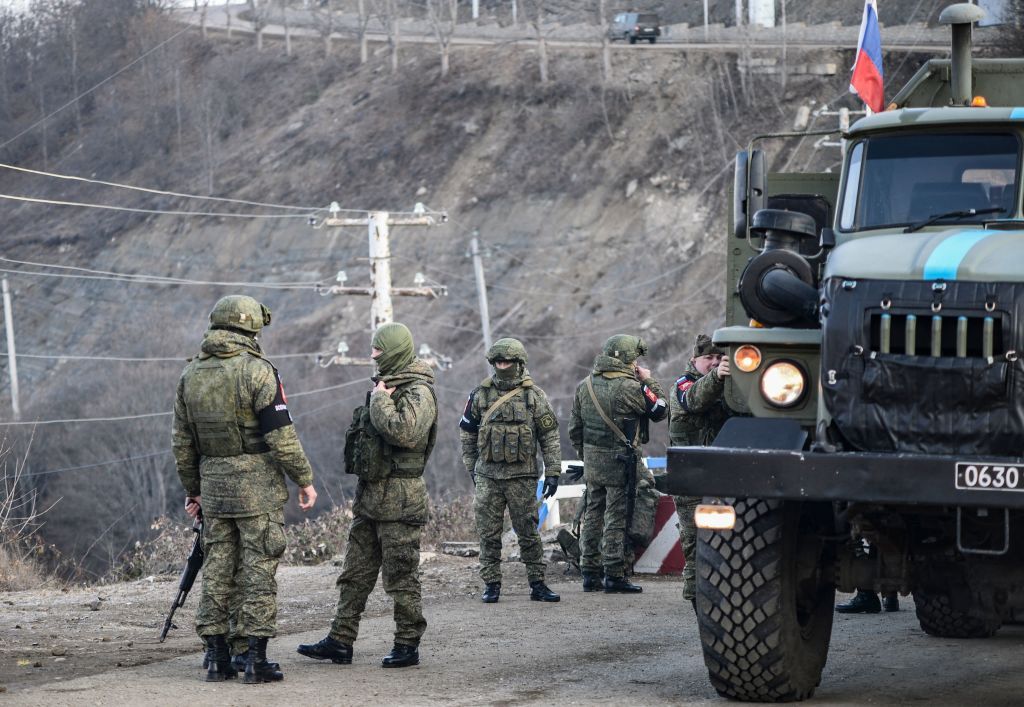Armenia, Azerbaijan agree to exchange prisoners, work toward peace treaty

Armenia and Azerbaijan agreed on Dec. 7 to work toward a peace treaty and make tangible steps for stabilizing mutual relations, including an exchange of prisoners.
Already strained relations between the two countries deteriorated further when Baku's swift September offensive seized Nagorno-Karabakh, driving out over 100,000 ethnic Armenians.
The dispute between the two countries had been going on for decades despite repeated attempts by the EU, the U.S., and Russia to broker a peace treaty.
"As a result of negotiations between the office of the Prime Minister of the Republic of Armenia and the administration of the President of the Republic of Azerbaijan, an agreement was reached to take tangible steps in the direction of building trust between the two states," a statement from the office of the Armenian prime minister read.
Baku pledged to release 32 Armenian soldiers, while Yerevan promised to release two Azerbaijani servicemen in return.
Armenia also said it would support Azerbaijan's bid to host UN COP29 climate talks while withdrawing its own candidacy as a "goodwill gesture."
In turn, Baku said it would support Yerevan's nomination for the COP29's bureau of the Eastern European Group.
Both parties agreed to take further steps to build mutual trust and appealed to the "international community to support their efforts."
The conflict between the two countries had centered around Karabakh, a region which was, until recently, under de facto control of an unrecognized ethnic Armenian republic but internationally recognized as Azerbaijani territory.
The two countries have also not yet agreed on the demarcation of their common, heavily militarized border, and skirmishes have been a regular occurrence.
Baku has repeatedly backed out of talks mediated by the U.S. or the EU, accusing them of pro-Armenian bias.
In turn, Yerevan has been seeking closer ties with the West while decrying Russia's failure to prevent Azerbaijani's offensive, even though Russian peacekeepers were deployed in the region.











